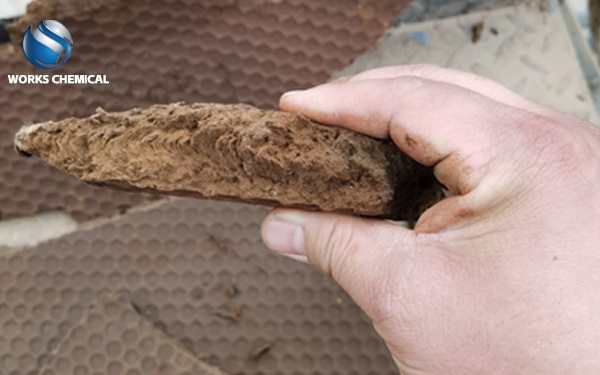
Sludge conditioner is an important agent for contemporary sludge problem treatment measures, he can help us quickly dehydrate and settle the sludge, so as to efficiently solve the sludge treatment problem, the sludge problem is the hardest hit video production industry, so today Xiaobian will take you to understand the advantages and characteristics of sludge conditioner in practical application.

Sludge treatment is one of the important environmental problems faced by paper mills. Traditional sludge treatment methods often have problems such as poor dewatering effect and carrying a lot of water. Therefore, the paper mill is in urgent need of a sludge conditioner that can quickly remove the moisture in the sludge, make it dry, and facilitate subsequent treatment. And the sludge synergist came into being.
Sludge enhancer is a kind of chemical substance which can change the surface structure of sludge, reduce the surface load of sludge solid, reduce the specific surface area of sludge and destroy the structure of bacteria. The main components of sludge enhancer are inorganic compounds, sludge surface structure modifier, degreaser, wall breaking agent, sludge surface treatment agent, sludge stripping agent, etc. The sludge enhancer combined with the plate and frame mud press can reduce the sludge water content from more than 90% to 40%-60%, and fully realize the sludge reduction. At the same time reduce the operating costs of enterprises.
Of course, sludge synergists also need certain precautions. First of all, the dosage form should follow the correct addition ratio to ensure the maximum dehydration effect. Secondly, the choice of dosage form needs to be adjusted according to the characteristics of different sludge to obtain the best treatment effect. The use of sludge enhancers should comply with relevant environmental regulations and standards to ensure the legality and sustainability of the treatment process.
Our daily use of sludge conditioner in the use of plate and frame filter press may face some potential problems and challenges:
1. Clogging filter cloth or filter plate: Inappropriate selection or dosing of sludge enhancer may lead to clogging of filter cloth or filter plate, reducing filtration efficiency.
2. Poor dehydration effect: If the type or dosage of sludge enhancer is not appropriate, it may lead to poor dehydration effect, even if the filter press is running, it still cannot reach the required moisture content.
3. Extended treatment time: Incorrect sludge synergists may take longer treatment time to complete the cake formation and dehydration process, reducing production efficiency.
4. Waste disposal problems: If the water content in the filter cake is higher, more resources will be required to treat and dispose of the waste, increasing the cost.
5. Equipment maintenance and cleaning: Incorrect use of sludge enhancers may lead to more frequent maintenance and cleaning of the plate and frame filter press.
6. Environmental compliance: Improper use of sludge enhancers can lead to wastewater discharge that does not meet environmental regulations and discharge standards, so special attention needs to be paid to environmental compliance.
7. Cost issues: Inappropriate sludge enhancers can increase wastewater treatment costs, including energy, chemical and waste treatment costs.
In the use of plate and frame filter press, it is very important to select and use the appropriate sludge enhancer. This requires careful assessment of sludge properties, wastewater treatment requirements and the operating conditions of the filter press to ensure better dewatering results and economy. Working with wastewater treatment experts to monitor and adjust the treatment process to address potential issues is key to ensuring smooth operation.